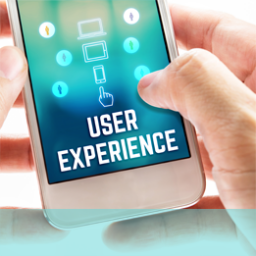
We have looked at anticipatory design in previous posts and noted that it appears to be the future for online service provision and holds the key to addressing some of the major issues that users have with web search and decision-making. However it is not all as cut-and-dried or plain sailing as this statement might at first suggest. Anticipatory design comes with issues that can hinder user experience which are as follows.
1. Trust
One of the major issues that anyone using anticipatory design has to overcome with users is that of trust. It might be a great benefit to a consumer to have somebody make a lot of the steps in the decision-making process for them, but what if the decisions are wrong or limiting the options? How do users know that the system really understands their needs and wants and is efficient in defining their search and implementing it? It all comes down to user experience and reassurance that the app provides an effective service not just in terms of time-saving but in coming up with the right answers and options.
2. Control
You need to be able to prove to users that your app is really delivering what they want. Positive experiences and results will be one way of doing this but other little touches such as feeding back information that decisions are based on, so the user understands the process or giving back some of the control at certain points so the user can feel engaged with the outcomes, can also help in reassuring and reinforcing the usefulness of the app. You can also provide the facility for users to opt out of using the system and continuing under their own control so they don’t feel trapped in the loop.
3. Limited Experiences
Taking away all control and choice from a user (or even apparently doing so) limits the possibilities for experimentation, innovation and creativity in exercising choice. If every choice we make in the future is based on all the choices we made in the past we are always going to get, roughly, the same thing each time we go through the loop, this is often referred to as the ‘Experience Bubble’. This could not only serve to make us all pretty boring and predictable but could also be quite dangerous in that it encourages us to exist in our own bubble where everything is tailored to our views and no opportunities arise to broaden our horizons or opinions or see and try new ideas and options.
Improving the User Experience
In order to address this very serious shortcoming it will, ultimately, be necessary for anticipatory design to include a degree of flexibility and intuitive decision-making to provide a broader and more inclusive approach to satisfying user needs and improving user experience. This will involve apps overlaying interpretation and analysis on data to extrapolate potential likes and wants that emanate from the underlying personality traits and views driving the information.
This might not be as complex as it sounds but it will rely on a degree of artificial intelligence to make the links and enhance the data interpretation in a meaningful and relevant way. If you are interested in finding out more about how anticipatory design works, or in applying it to your own online apps, ring us on +44(0)800 0246247 or email us at hello@ux247.com.






